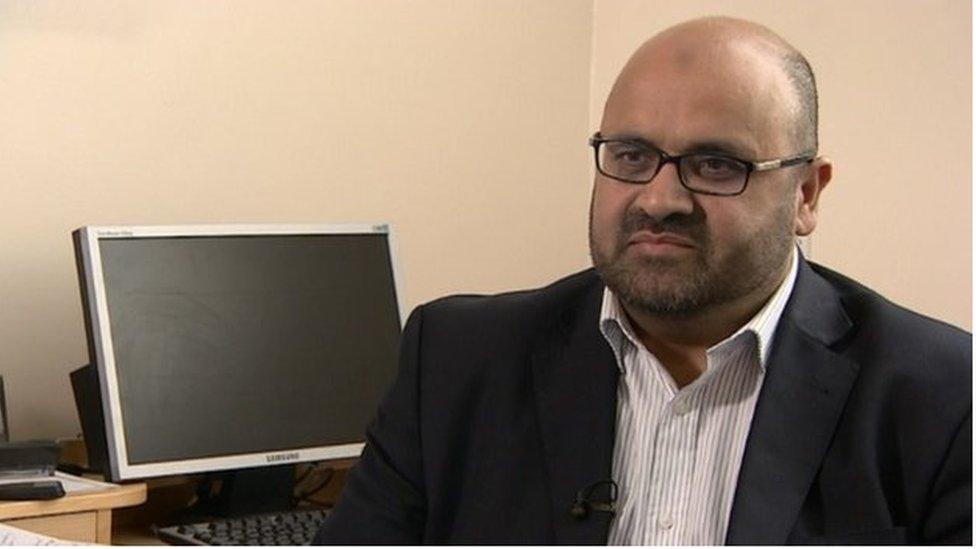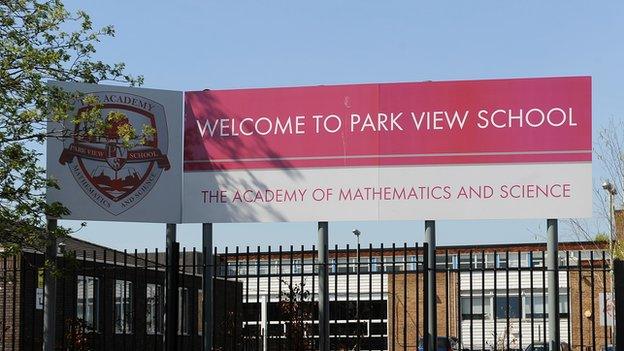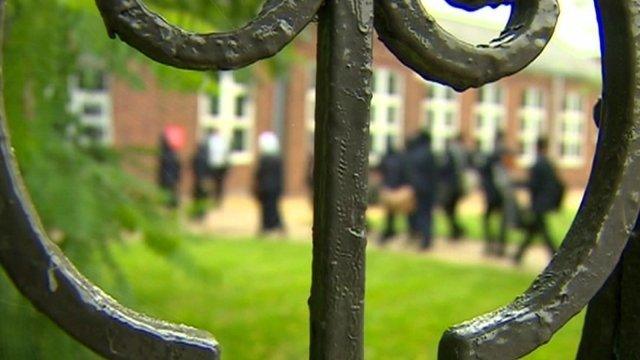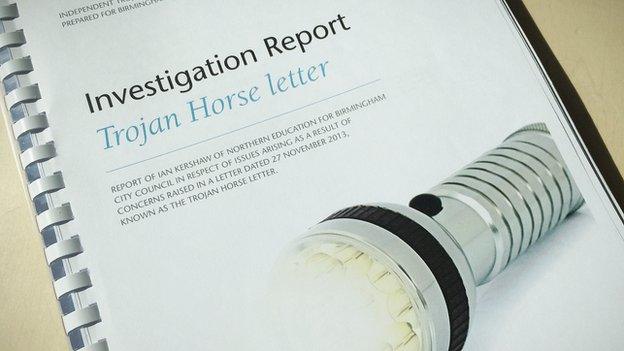Schools ban for Trojan Horse governor
- Published

Tahir Alam is going to appeal against the ban
The former chairman of the Birmingham education trust at the centre of the "Trojan Horse" inquiry has been banned from any involvement in schools.
Tahir Alam was banned under new powers after the Secretary of State considered evidence in a government inquiry, the Department for Education said.
"Extremism has no place in our schools," a spokeswoman said.
Mr Alam, the former head of governors for Park View Education Trust, denies any wrongdoing and will appeal.
It was alleged last year in an anonymous letter that extremists had tried to take over several schools in Birmingham to advance radical interpretations of Islam.
Although the provenance of the so-called Trojan Horse letter has never been established, a government inquiry led by former counter-terrorism chief Peter Clarke - one of a several separate inquiries carried out - found "sustained action carried out by a number of associated individuals to introduce an intolerant and aggressive Islamist ethos into a few schools in Birmingham".
'Within the law'
Under the ban, Mr Alam is prohibited from holding governor roles in all independent schools, academies, free schools, and maintained schools.
The Department for Education said: "We will investigate any allegations [of extremism] and will not hesitate to take action against individuals who put children at risk by exposing them to radicalisation or extremist views."
Mr Alam called the ban an "abuse of authority" and described the allegations made in the reports as "completely false".
He said he had worked as a volunteer for 20 years helping to transform failing schools into "excellent schools".
"All of the activities that the school did in relation to accommodating the needs of the children from these communities, predominately Muslim communities, were done within the parameters of the law and the accommodation that we made in respect of religious needs, of course, were voluntary, they were never mandatory, they were never required," he said.
"So we were simply responding to the communities that we were serving."
The Trojan Horse inquiries were so named following allegations that Muslim groups were behind attempts to undermine certain head teachers and take over a number of schools in Birmingham.
Correction 8 September 2015: This report has been amended to clarify the results of investigations into the claims of the so-called Trojan Horse letter.
- Published27 June 2015

- Published16 July 2015

- Published24 March 2015

- Published17 March 2015

- Published10 February 2015

- Published8 January 2015

- Published23 July 2014

- Published18 July 2014
